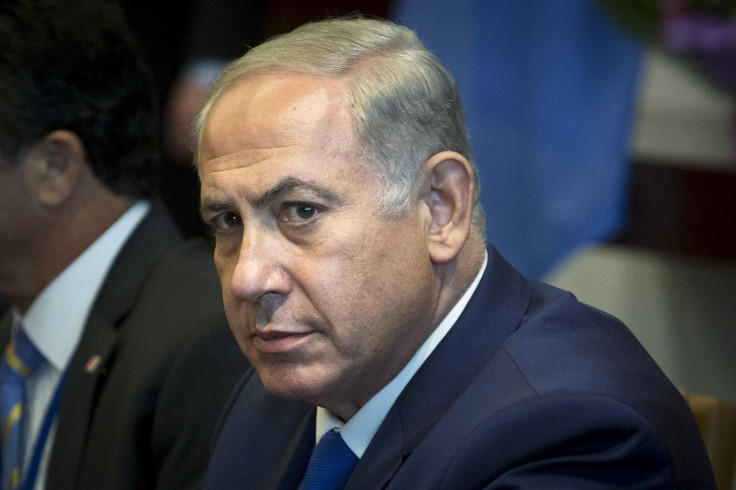Following EU Decision To Label All Israeli Goods, Netanyahu Breaks Diplomatic Contact

Following the European Union's decision to publish legislation guidelines on labeling Israeli settlement products, Prime Minister Benjamin Netanyahu instructed his foreign ministry to reassess its contact with European Union institutions in the Israeli-Palestinian conflict talks. The request came Sunday, after the EU approved new guidelines for labeling products from occupied lands in Israel earlier this month.
Emmanuel Nahshon, the spokesman for the Israeli Ministry of Foreign Affairs, said Netanyahu ordered the ministry to "reassess" the level of involvement that Israel would have with the EU's foreign affairs service and the European Commission on issues related to the diplomatic process with the Palestinians.
The guidelines, which had been in the works since 2012, specify that all goods must be labeled as from the territories occupied by Israel since June 1967. An EU commission spokesman said the guidelines would “ensure the uniform application of the rules concerning the indication of origin of Israeli settlement products. The aim is to ensure effective implementation of existing EU legislation,” the Jerusalem Post reported.
The EU had delayed the publication of the guidelines because the U.S. was in the midst of brokering a nine-month negotiation process between Israel and the Palestinians. Now that the guidelines have been approved, however, Netanyahu -- who is also the foreign minister -- is pulling back from working with EU institutions involved in the Israeli-Palestinian talks.
“These measures are discriminatory in nature. It is intolerable that Israel is the only country that has been singled out by the EU for such a policy, despite the fact that there are over 200 disputed territories worldwide,” the Foreign Ministry said in a statement.
Prime Minister's Office said in a statement that Israel would maintain diplomatic ties with individual European countries such as Germany, the U.K. and France.
© Copyright IBTimes 2025. All rights reserved.





















